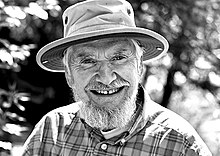
Rhetoric is the art of persuasion, which along with grammar and logic, is one of the three ancient arts of discourse. Rhetoric aims to study the techniques writers or speakers utilize to inform, persuade, or motivate particular audiences in specific situations. Aristotle defines rhetoric as "the faculty of observing in any given case the available means of persuasion" and since mastery of the art was necessary for victory in a case at law, for passage of proposals in the assembly, or for fame as a speaker in civic ceremonies, he calls it "a combination of the science of logic and of the ethical branch of politics". Rhetoric typically provides heuristics for understanding, discovering, and developing arguments for particular situations, such as Aristotle's three persuasive audience appeals: logos, pathos, and ethos. The five canons of rhetoric or phases of developing a persuasive speech were first codified in classical Rome: invention, arrangement, style, memory, and delivery.
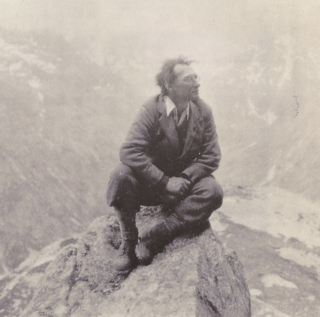
Ivor Armstrong Richards CH, known as I. A. Richards, was an English educator, literary critic, poet, and rhetorician. His work contributed to the foundations of the New Criticism, a formalist movement in literary theory which emphasized the close reading of a literary text, especially poetry, in an effort to discover how a work of literature functions as a self-contained and self-referential æsthetic object.

Communication studies or communication science is an academic discipline that deals with processes of human communication and behavior, patterns of communication in interpersonal relationships, social interactions and communication in different cultures. Communication is commonly defined as giving, receiving or exchanging ideas, information, signals or messages through appropriate media, enabling individuals or groups to persuade, to seek information, to give information or to express emotions effectively. Communication studies is a social science that uses various methods of empirical investigation and critical analysis to develop a body of knowledge that encompasses a range of topics, from face-to-face conversation at a level of individual agency and interaction to social and cultural communication systems at a macro level.
Aristotle's Rhetoric is an ancient Greek treatise on the art of persuasion, dating from the 4th century BCE. The English title varies: typically it is Rhetoric, the Art of Rhetoric, On Rhetoric, or a Treatise on Rhetoric.

Kathleen Hall Jamieson is an American professor of communication and the director of the Annenberg Public Policy Center at the University of Pennsylvania. She co-founded FactCheck.org, and she is an author, most recently of Cyberwar, in which she argues that Russia very likely helped Donald J. Trump become the U.S. President in 2016.
Edward P.J. Corbett was an American rhetorician, educator, and scholarly author. Corbett chaired the 1970 Conference on College Composition and Communication, and was chair of the organization and a member of the National Council of Teachers of English Executive Committee in 1971. He was also chair of the Rhetoric Society of America from 1973 to 1977. From 1974 to 1979, he was editor of the journal College Composition and Communication. He is known for promoting classical rhetoric among composition scholars and teachers.
Karlyn Kohrs Campbell is an American academic specializing in rhetorical criticism at the University of Minnesota.
Rhetoric of science is a body of scholarly literature exploring the notion that the practice of science is a rhetorical activity. It emerged after a number of similarly-oriented topics of research and discussion during the late 20th century, including the sociology of scientific knowledge, history of science, and philosophy of science, but it is practiced most typically by rhetoricians in academic departments of English, speech, and communication.
Robert Lee Scott was an American scholar influential in the study of rhetorical theory, criticism of public address, debate, and communication research and practice. He was professor emeritus in the Communication Studies Department at the University of Minnesota. He is the author of five books, numerous articles in speech, communications, philosophy, and rhetoric journals, and contributed many book chapters. His article "On Viewing Rhetoric As Epistemic", is considered one of the most important academic articles written in rhetorical studies in the past century.
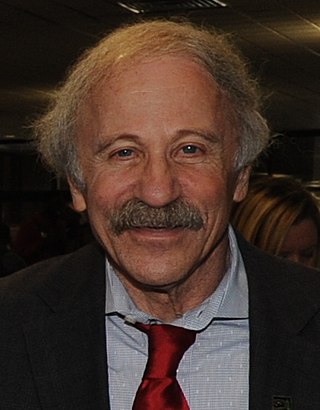
Richard Eugene Vatz is an American academic, lecturer and writer who is a professor of Rhetoric and Communication at Towson University.
Dilip Parameshwar Gaonkar is a Professor in Rhetoric and Public Culture and the Director of Center for Global Culture and Communication at Northwestern University. He is also Executive Director of the Center for Transcultural Studies, an independent scholarly research network concerned with global issues based in Chicago and New York. Gaonkar was closely associated with the influential journal Public Culture from the early 1990s, serving in various editorial capacities: associate editor (1992-2000), executive editor (2000-2009), and editor (2009-2011).
David H. Zarefsky is an American communication scholar with research specialties in rhetorical history and criticism. He is professor emeritus at Northwestern University. He is a past president of the National Communication Association (USA) and the Rhetoric Society of America. Among his publications are six books and over 70 scholarly articles concerned with American public discourse, argumentation, rhetorical criticism, and public speaking are books on the Lincoln-Douglas debates and on the rhetoric of the war on poverty during the Johnson administration. His lectures on argumentation and rhetoric can be heard in a course for The Teaching Company.

Joseph Warren Dauben is a Herbert H. Lehman Distinguished Professor of History at the Graduate Center of the City University of New York. He obtained his PhD from Harvard University.
Robert Hariman is an American scholar of rhetoric and public culture. He received his BA from Macalester College in 1973, and received his MA in 1975 and PhD in 1979 from the University of Minnesota. He was a member of the faculty at Drake University from 1979 to 2004, and since then has been a professor in the Department of Communication Studies at Northwestern University. He also served as department chair at both institutions.
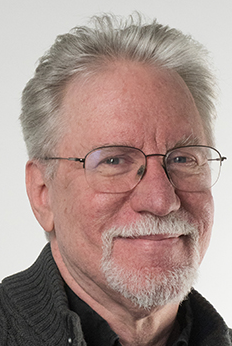
Anthony Edward Schiappa, Jr. is an American scholar of communication and rhetoric, currently Professor of Comparative Media Studies/Writing at the Massachusetts Institute of Technology, where he holds the John E. Burchard Chair of Humanities; from 2013 to 2019, he also served as the program's Head. Previously, he spent seventeen years in the Communication Studies Department at the University of Minnesota, the last seven of which he served as chair. He is the author of eight books and numerous articles that have appeared in classics, communication, English/Composition, philosophy, psychology, and law journals.
Susan Zaeske is Professor of Rhetoric and Public Culture in the Department of Communication Arts and Arts and Associate Dean for Arts and Humanities in the College of Letters & Science at the University of Wisconsin-Madison.
James Louis Kinneavy was an American scholar and teacher of rhetoric and composition. Since the publication of his best-known work, A Theory of Discourse, he has been widely considered “one of America's major rhetorical theorists.” The book's main contribution to the field of contemporary discourse is the case Kinneavy made for the importance of rhetoric throughout Western history. He authored seven books and over thirty articles on rhetorical theory and composition pedagogy, and his work has been the “cornerstone of dozens of textbooks on composition, many university and college programs, and entire state language arts programs.” Throughout his career, Kinneavy was heavily involved with teaching, working with the Texas Department of Education and as a consultant to school districts in Texas and other states.

Carolyn Rae Miller is SAS Institute Distinguished Professor of Rhetoric and Technical Communication Emerita at North Carolina State University. In 2006 she won the Rigo Award for Lifetime Achievement in Communication Design from the ACM-SIGDOC and in 2016 the Cheryl Geisler Award for Outstanding Mentor, the Rhetoric Society of America. She is a Fellow of the Association of Teachers of Technical Writing (1995) and of the Rhetoric Society of America (2010). Her “groundbreaking and influential article” on “Genre as Social Action” is foundational for Rhetorical Genre Studies. Three of her articles have been identified as essential works in Technical Communication.
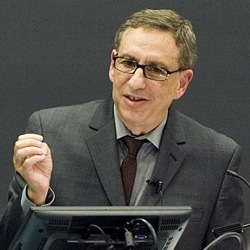
Jeffrey K. Tulis is an American political scientist known for work that conjoins the fields of American politics, political theory, and public law.
